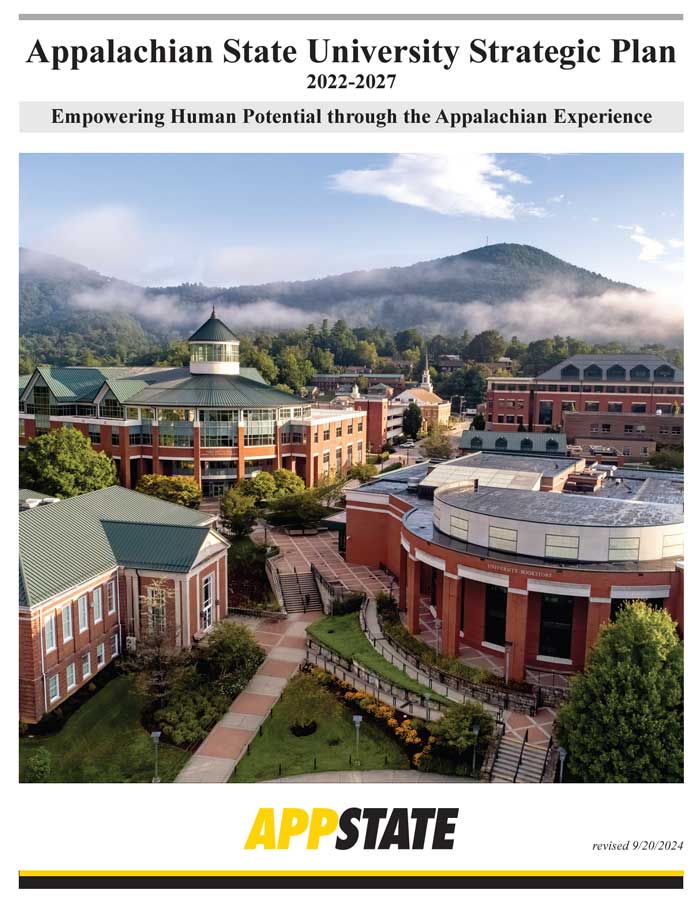
Strategic Priorities
Providing Exceptional Educational Experiences
Provide all students with inspirational learning experiences that foster student success and add demonstrated value to their investment in higher education.
- Deliver innovative, relevant academic programs.
- Foster teaching excellence.
- Expand experiential learning.
- Support co-curricular learning experiences that augment classroom learning.
- Leverage technology to support teaching and learning.
Advancing Research, Innovation and Creativity
Advance knowledge and promote discovery and the application of findings that benefit our region, state, nation and world.
- Cultivate undergraduate scholarship.
- Elevate graduate programs.
- Prioritize areas of identified excellence.
- Maximize support for scholarly and creative activities.
- Amplify transformative partnerships.
Advancing Local, Regional and Global Engagement
Foster lasting economic vitality through local, regional and global engagement.
- Foster student career readiness.
- Collaborate with external stakeholders in Western North Carolina.
- Expand educational access to rural and underserved communities.
- Promote local and global civic engagement.
Cultivating a supportive university community focused on student success
Advance student success through support and resources for faculty, staff and students.
- Advance scholarship that prepares students for a competitive and complex workforce.
- Ensure access to opportunities for student success and well-being.
- Identify and remove barriers to success of faculty, staff and students.
- Provide resources to the entire campus community that help infuse a culture of freedom of expression, academic freedom, nondiscrimination, institutional neutrality and student success.
Investing in Faculty and Staff Excellence
Dedicate and ensure ongoing resources to recruit, retain and support exceptionally talented faculty and staff.
- Emphasize innovative recruitment and retention strategies.
- Identify and invest in ongoing and clear paths for career advancement.
- Incentivize employee innovation and collaboration.
- Foster a team-oriented community of employees committed to quality of life and work.
Strengthen Resilience and Sustainability
Strengthen our culture of sustainability that protects and supports the physical environment, the well-being of people, the university’s economic vitality, and the resilience of our campus community.
- Expand the integration of sustainability throughout the curriculum and through co-curricular experiences beyond the classroom.
- Galvanize business and operational practices that prioritize sustainability and resilience initiatives.
- Identify and support resilience and sustainability initiatives that complement the university’s strategic priorities.

